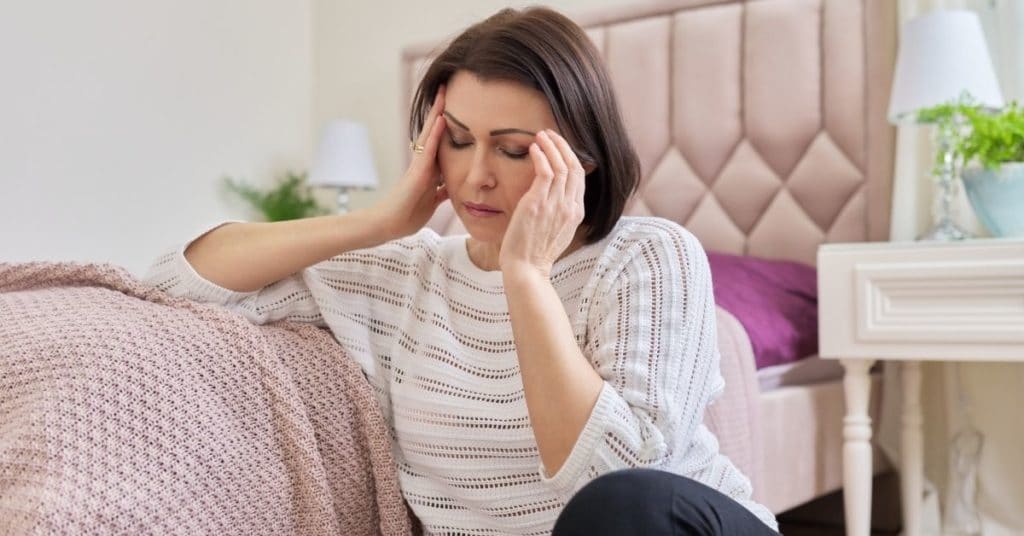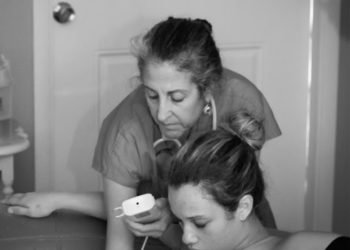Menopause is a natural process that happens to every woman. It is a time when the body stops producing estrogen and progesterone. This can lead to many symptoms like hot flashes, mood swings, and sleep deprivation.
The lack of sleep can have a negative impact on your health and well-being. Sleep is essential for your mood and mind, and a lack of sleep exacerbates many other menopausal symptoms such as stress, memory loss, sadness, and other bodily discomforts.
Just because our hormones make it more difficult doesn’t mean we don’t need to sleep. So, instead of subjecting yourself to possible years of sleep deprivation, let the midwives of Midwife360 share some tried-and-true tactics for how to get better sleep in menopause.
Menopause Symptoms
Menopausal symptoms are quite common; they are so unpleasant that over 90% of women seek assistance from a medical professional on how to manage. The typical sign of menopause is a hot flash.
While most women will only suffer hot flashes for a year or two, some will have them for a decade or over. Meanwhile, a small percentage of women will never be free of them. Poor sleep becomes increasingly prevalent in perimenopausal women, not just as a result of the menopause transition, but also as a result of aging.
Because estrogen and progesterone both have a role in sleep, low levels during menopause could promote sleep difficulties. Lower estrogen levels are also to blame for other typical menopausal symptoms, such as unpleasant and painful hot flashes and night sweats, which can disrupt sleep, as well as anxiety and sadness, which makes it harder to fall asleep. Melatonin levels gradually decline with age.
Why Sleep Matters
A good night’s sleep is essential for healthy physical and mental health, as well as high quality of life. Sleep deprivation is a widespread and visible issue in today’s culture. A substantial amount of data demonstrates that a lack of sleep produces a slew of negative physiological and mental dysfunctions. Sleep deprivation has been connected to 7 of the top 15 causes of mortality in the United States, including :
- cardiovascular disease
- malignant neoplasm
- cerebrovascular illness
- accidents
- diabetes
- septicemia
- hypertension
For optimal sleep health, the American Academy of Sleep Medicine (AASM) and the Sleep Research Society (SRS) suggest that individuals aged 18 to 60 years sleep seven or more hours every night on a regular basis. Further, the National Sleep Foundation (NSF) consensus report states that individuals aged 18 to 64 years should get seven to nine hours of sleep every night, while those 65 and above should get seven to eight hours.
When it comes to regaining the rest you so urgently need and deserve, lifestyle sleep techniques shine bright. In reality, sometimes all you need is solid dedication to making sleep a priority by improving your lifestyle. When it comes to sleep issues with menopause, here are a few to strongly emphasize.
Wind Down Method
If you haven’t yet included a wind-down method into your nighttime routine, now is the time! Good sleep begins in the hours before bed. You must make it a priority, not just on certain evenings, but as a regular lifestyle routine.
Simple methods like dimming the lights, scheduling time for self-care such as a calming bath, maintaining a sleep diary to write your anxieties away, and staying off electronics for at least one hour before bed will make a big impact.
Limit Alcohol Consumption
Alcohol is a stimulant that interacts with various neurotransmitter systems that are involved in the regulation of sleep. Drinking a large amount of alcohol while blood alcohol levels are high prior to sleep results in shortened sleep, onset latency, and alterations in sleep patterns early in the night.
Melatonin a major sleep aid and regulator of sleep-wake cycles are effectively suppressed by alcohol. According to research, a modest dosage of alcohol up to an hour before sleep can suppress melatonin generation by about 20%. Alcohol has a direct influence on circadian rhythms, reducing the master biological clock’s capacity to respond to the light signals that maintain it in sync.
Adjust Room Temperature
Poor room temperature, whether too hot or too chilly, can make it difficult to sleep comfortably. According to experts, sleeping temperatures should be between 66 and 70 degrees Fahrenheit.
Cold temperature, according to researchers, can impact cardiovascular function as well as raise the morning blood pressure increase, a natural phenomenon that happens in adults. Our bodies are more sensitive to ambient temperatures during REM sleep, which might explain why cold exposure really does have a higher impact later in the night when REM sleep is ruling.
Herbal Remedies
Several herbal and vitamins have been demonstrated to promote healthy sleep — without the hazards associated with drugs. In addition to the herbs and vitamins described below for general sleep support, the following have been carefully examined for menopausal-specific use.
Melatonin
As previously stated, our melatonin levels decrease gradually as we age, which might interfere with sleep for certain women. Melatonin administration has been demonstrated in studies to delay endocrine aging in women 40 to 60 during the menopausal transition. As well as to improve disrupted sleep and other vasomotor symptoms of menopause such as hot flashes and night sweats.
Calcium & Magnesium
A blend of calcium and magnesium, or magnesium alone, can induce relaxation and sleep, enhance sleep quality, and reduce anxiety. It can also help reduce bone loss linked with perimenopause. Magnesium may also be beneficial if you have restless leg syndrome or muscular cramps that keep you awake at night.
5-HTP
Numerous studies have shown that 5-hydroxytryptophan (5-HTP) has a positive effect on sleep. 5-HTP is a precursor to the neurotransmitter serotonin, which is vital for sleep length and quality. This has been proven to reduce the time necessary to fall asleep as well as the rate of nighttime awakenings. Taking 5-HTP will increase serotonin levels, which is a key sleep activator.
Ashwagandha
Ashwagandha is a key plant in Ayurveda. A historic style of alternative medicine based on Indian ideas of natural healing. Ashwagandha aids in the following:
- nourish
- clarify the mind
- soothe and strengthen the nerves
- promote peaceful sleep
It’s also very beneficial if you’re also dealing with stress and worry, as well as having trouble sleeping.
Still Have Trouble Sleeping
If you want a prescription, our highly trained midwives can assist you. Midwife360 may also identify underlying problems in addition to hormone abnormalities, ensuring that you’re covering all of your bases for holistic wellness.

















